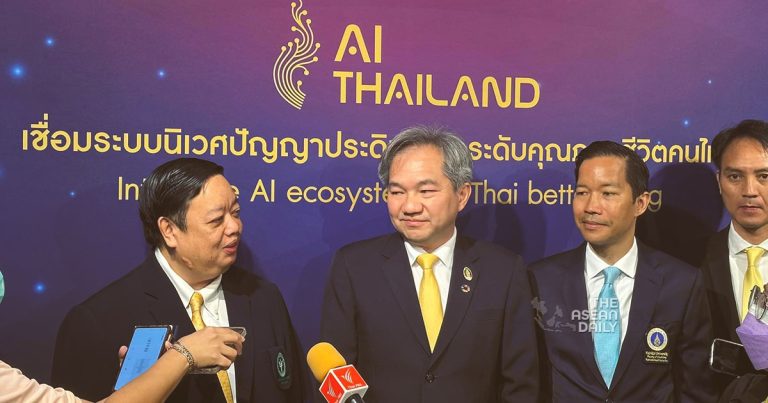29-8-2023 (BANGKOK) Thailand’s National Science and Technology Development Agency (NSTDA) is joining forces with the Public Health Ministry’s Department of Medical Services and Ramathibodi Hospital’s Faculty of Medicine at Mahidol University to advance the use of artificial intelligence (AI) within the medical sector. This collaborative project, with 120 million baht in funding, centers on medical AI data sharing.
The initiative involves research and development to create an open medical data platform accessible to AI developers. The goal is to provide them with specific information necessary for the development of innovative medical AI applications.
This endeavour aligns with Thailand’s national AI strategy and action plan for 2022-2027, aimed at enhancing the country’s position in the AI Governance Readiness Index. Thailand has made substantial progress, improving from 59th out of 181 countries in 2021 to 31st out of 160 countries in 2022.
Globally, AI is a rapidly growing trend, with the AI economy projected to reach $2 trillion by 2030, marking a twentyfold increase from 2021. Thailand is determined to increase its own AI value by a factor of 20 within the next five years.
Sukit Limpijumnong, NSTDA president and co-secretary general of the National AI committee, emphasized the significance of AI and the potential it holds. “AI is a growing trend globally, with estimated growth of the AI economy set to reach US$2 trillion by 2030, a 20-fold growth from 2021. Thailand aims to expand such value by 20 times within five years,” he stated during the memorandum of understanding (MoU) signing ceremony with the Department of Medical Services and Ramathibodi Hospital for the data-sharing project.
Since the establishment of the National AI Committee and the launch of the national AI strategy and action plan 2022-27 in the past year, Thailand has made significant strides. The country has developed its first AI ethical and governance guidelines, introduced AI services on cloud infrastructure, and invested 1.2 billion baht in AI research and development.
The MoU signing represents a crucial step in the advancement of medical AI. It leverages NSTDA’s research capabilities and AI expertise, combined with the regulatory knowledge of the ministry and expertise from public hospitals. This collaborative effort will facilitate access to medical databases containing information such as chest X-rays, MRI scans, CT scans, cancer images, and retinal nerve images.
Importantly, the data management complies with the Personal Data Protection Act, ensuring the ethical use of the data. AI experts will be able to harness this data to enhance and expand the benefits it offers.
One notable achievement in this context is the AIChest4All software, developed through collaboration between the Public Health Ministry’s Department of Medical Services and Thammasat University. This software enables doctors to screen patients for lung cancer, tuberculosis, chest diseases, and other abnormalities within one minute with a high degree of accuracy.
Chai Wutiwiwatchai, executive director of the National Electronics and Computer Technology Center (Nectec), sees open data sharing as a significant step in the field of medical AI. He aims to have a chest X-ray database containing 500,000 images in the AI open data sharing project. Several universities affiliated with the Department of Medical Services, including Chulalongkorn Hospital, are expected to participate in the initiative.
Dr. Chagriya Kitiyakara, director of the medical innovations development centre at Ramathibodi Hospital’s Faculty of Medicine, emphasized the role of AI in healthcare and learning. The hospital’s radiology unit possesses substantial data, and Dr. Chagriya expressed support for the project, offering data, resources, and personnel to accelerate medical AI development in Thailand.




